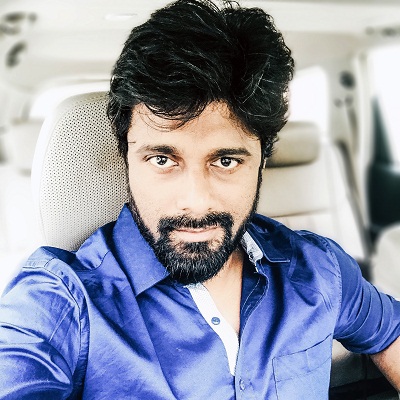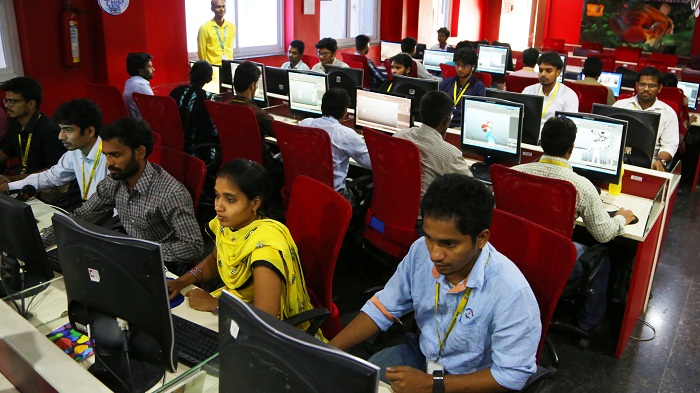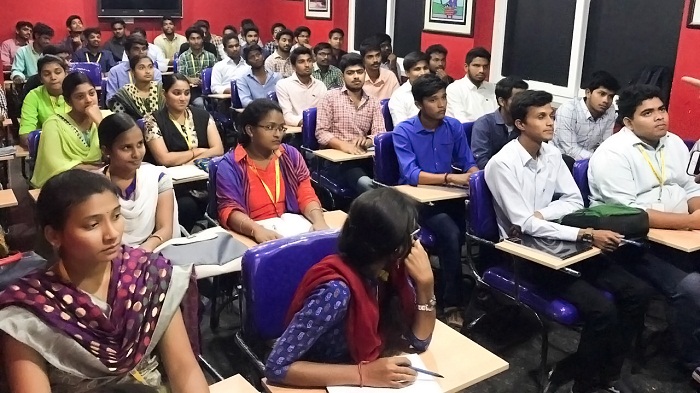That’s why fulfilling student expectations, delivering quality curriculum and nurturing them into being well trained professionals is my single priority as a training professional.
 I stepped into the animation industry in the year 1997 after graduating from Osmania University when animation in India was getting noticed. I learnt advanced 3D animation in Mumbai and was exposed to the wonderful world of animation and the possibilities that exist. During my training I realised my calling in life – to train others, and thus began my journey as an animation faculty. Countless interactions with my peers and like-minded industry professionals further helped me hone my skills as a trainer and incorporate the learning and finer nuances of production within my sessions.
I stepped into the animation industry in the year 1997 after graduating from Osmania University when animation in India was getting noticed. I learnt advanced 3D animation in Mumbai and was exposed to the wonderful world of animation and the possibilities that exist. During my training I realised my calling in life – to train others, and thus began my journey as an animation faculty. Countless interactions with my peers and like-minded industry professionals further helped me hone my skills as a trainer and incorporate the learning and finer nuances of production within my sessions.
In India, effective production pipeline, skilled workforce and infrastructure have been some of the major hurdles in the animation industry. The leading companies of today have all this in place roughly, which means there remains huge scope for improvement and the future of the animation industry is yet to grow by leaps and bounds.
With the increasing confidence of the international community, India is soon to be trusted with the generation of original content, which calls for many new institutes offering courses on animation education.
Thus, Indian animation education presents a vast opportunity to be tapped by potential entrepreneurs. With global players exploring India as a talent pool for animation content there is a huge potential for the growth of the animation education in the country.
I constantly strive to learn from the students and have kept this two way communication always open for sharing and learning. I believe that everyone has equal potential, waiting to be tapped through the right guidance and mentoring. Over the last 12 years at DQSVA (DQ School of Visual Arts) I have moved on to `training the trainers’ but I try and keep a healthy balance of taking sessions personally with the student community which keeps me going and helps me stay young at heart and mind.

Since students don’t have too long an attention span, I try to make the sessions as interesting as possible during the planning stage with my set of trainers. There is a constant need to refine the style, approach and curriculum as we go along, which has been the USP of DQSVA.
Students in DQSVA are encouraged to think independently and visualise the `impossible’, after all, thinking should be free of technological boundaries and once the thought is frozen we analyse and work around how to make the student achieve the so called `production techniques’ which he would be able to do during the final project.
The course design is such that the student undergoes `real life experience’ which gives him the feel of what it would be to work on a `live project’ once he graduates. Each and every student is given the dedicated attention and one-on-one sessions with the trainers and mentors. This benefits the student immensely in his learning process.
Constant guest sessions from the DQE production team are an added bonus as the students get to learn from the same team which has delivered over 10,000 minutes of world class animation and gaming content over the years working with world major studios.

Apart from teaching the skills required to be a `good animator’, we constantly work towards building the students’ self-esteem and personality. Special emphasis is paid on these sessions as the right attitude towards working as a solid team member within the industry is as important, if not more, than just gaining the relevant technical skills.
I feel quite proud when my past students get in touch to inform their progress as a professional at some of the best names in the business. I know that I made a difference in the student’s life and for me, that’s the best gratification that I can hope for.
(The article was contributed by DQ Entertainment assistant general manager Srinivas Vasanthala.)
